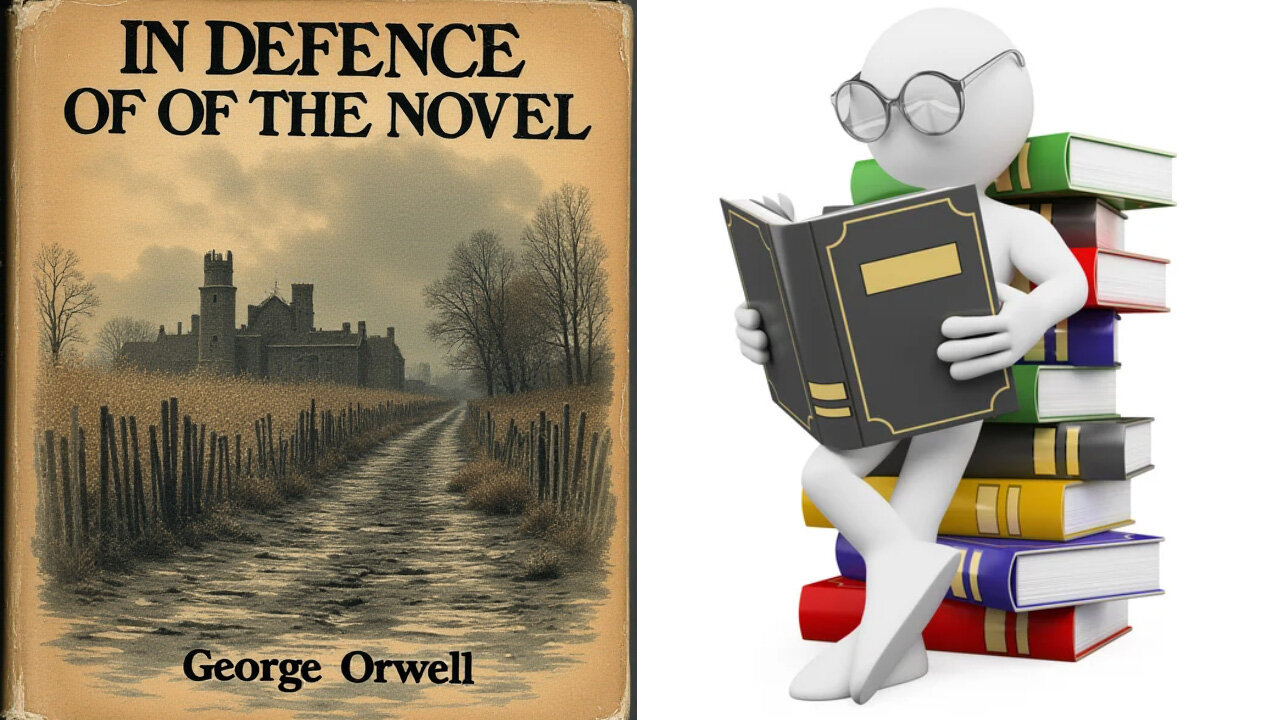Premium Only Content

'In Defence of the Novel' (1936) by George Orwell
In this article George Orwell critiques the contemporary dismissal of the novel as a serious art form, emphasizing its value in capturing the complexities of human experience. Orwell acknowledges that many novels of his time suffer from clichés and lack depth, yet he argues that the novel remains one of the most effective ways to explore human behavior and societal issues.
He highlights the novel’s ability to address the everyday lives and struggles of ordinary people, which many other literary forms might overlook. Orwell defends the genre against accusations of being merely entertainment, emphasizing that its narrative structure allows for a deep connection with characters and an understanding of the human condition.
Orwell also addresses the idea that novels can be politically significant. He believes that, while not all novels are politically motivated, the best ones often shed light on societal problems, helping readers to engage with the social and moral issues of their time. He ultimately concludes that, despite criticisms, the novel’s adaptability and capacity for varied storytelling make it an enduring and valuable form of art.
-
 1:00:27
1:00:27
Trumpet Daily
19 hours ago $3.91 earnedCongress Humiliates Itself - Trumpet Daily | Jan. 15, 2025
9.31K15 -
 1:49:46
1:49:46
Glenn Greenwald
1 day agoTrump Fosters A Peace Deal With Israel & Gaza; Trump's Pressure On Israel Embarrasses His Enemies & Provides Foreign Policy Clues; Rubio & Hegseth On War And Militarism | SYSTEM UPDATE #389
112K183 -
 1:28:46
1:28:46
Donald Trump Jr.
19 hours agoOut of this World: Breaking News Investigation on Secret Alien Aircrafts, Live with Ross Coulthart & Lue Elizondo | TRIGGERED Ep.207
322K471 -
 1:39:31
1:39:31
Space Ice
15 hours agoSpace Ice & Redeye: Battlefield Earth & Rob Schneider
86.8K7 -
 1:33:38
1:33:38
Flyover Conservatives
1 day agoAMANDA GRACE | Prophetic Warnings Ignored: What Happens When Leaders Defy God | FOC Show
72.3K28 -
 59:57
59:57
The StoneZONE with Roger Stone
14 hours agoMEDICAL MURDER: A Sneak Peak into the Making of Died Suddenly 2 | The StoneZONE w/ Roger Stone
55.2K13 -
 1:07:03
1:07:03
Tucker Carlson
13 hours agoMother of Likely Murdered OpenAI Whistleblower Reveals All, Calls for Investigation of Sam Altman
155K195 -
 55:44
55:44
LFA TV
20 hours agoCongress Humiliates Itself | TRUMPET DAILY 1.15.25 7pm
155K58 -
 1:42:04
1:42:04
2 MIKES LIVE
15 hours ago2 MIKES LIVE #167 News Breakdown Wednesday!
96.4K16 -
 2:12:19
2:12:19
Quite Frankly
18 hours ago"Fahrenheit 2025: Drone Hysteria, The Fog, Smart L.A." ft. Elana Freeland 1/15/25
102K27